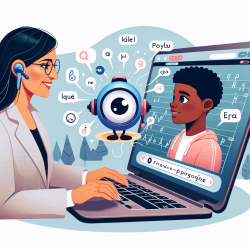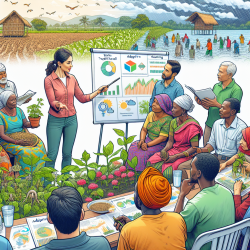Empowering Change: Fostering Healthy Relationships Among Indigenous Youth
In the remote and culturally rich landscapes of the Northwest Territories, Indigenous youth face unique challenges. The ongoing effects of colonialism, racism, and the legacy of residential schools have left deep scars, contributing to the high prevalence of intimate partner violence (IPV) among Indigenous communities. However, recent research highlights promising strategies to empower these young individuals, helping them build healthy relationships and reduce IPV.
The Research: A Multi-Method Approach
The study titled "Peer and land-based approaches for fostering empowering and healthy relationships with Indigenous and northern young people in the Northwest Territories" employs a comprehensive approach. It involves both qualitative and quantitative methods, focusing on the experiences of participants in the Fostering Open eXpression among Youth (FOXY) and Strength, Masculinities, and Sexual Health (SMASH) Peer Leader Retreats. These programs aim to equip youth with the skills and knowledge necessary for violence prevention and fostering healthy relationships.
Key Findings: Empowerment Through Education
The research reveals several key insights:
- Individual Awareness: Participants gained a deeper understanding of what constitutes healthy and unhealthy relationships. They learned to identify "red flags" and developed strategies to avoid or leave unhealthy situations.
- Skill-Building: The retreats provided practical skills, such as communication and boundary-setting, empowering youth to navigate relationships more effectively.
- Community Impact: Participants expressed a strong desire to share their newfound knowledge with their communities, planning projects to promote healthy relationships and IPV prevention.
Implications for Practitioners
For practitioners working with Indigenous and Northern youth, this research offers valuable insights and strategies:
- Adopt a Strengths-Based Approach: Focus on the resilience and creativity of Indigenous youth, rather than viewing them through a deficit lens.
- Incorporate Cultural Elements: Utilize culturally relevant frameworks, such as the medicine wheel, to ground programming in Indigenous traditions and values.
- Promote Peer Leadership: Encourage youth to take on leadership roles, fostering a sense of responsibility and empowerment within their communities.
Conclusion: A Path Forward
The findings underscore the potential of peer and land-based approaches in fostering healthy relationships among Indigenous youth. By focusing on empowerment, cultural relevance, and community involvement, practitioners can make a significant impact in reducing IPV and promoting positive outcomes for future generations.
To read the original research paper, please follow this link: Peer and land-based approaches for fostering empowering and healthy relationships with Indigenous and northern young people in the Northwest Territories.










